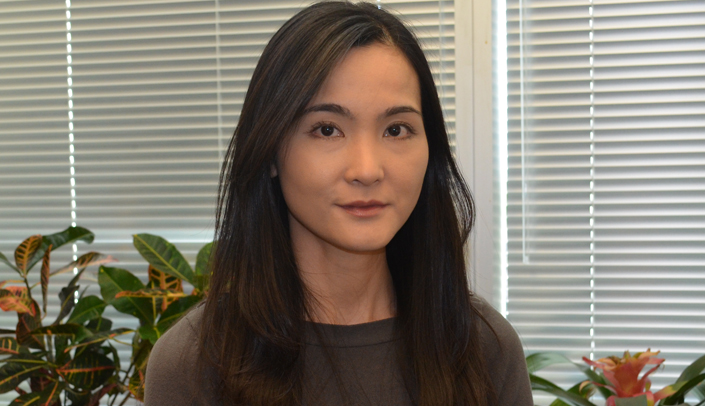For years scientists have studied breast cancer cells to varying degrees to determine why and how they form, thrive and communicate with one another and in some cases resist treatment.
Personalized medicine, targeted therapies and preventive measures have become the norm. And all the while, Melissa Teoh-Fitzgerald, Ph.D., has wondered about the tissue surrounding the cancer cells, also known as the stroma, or connective tissue, that supports the cancer cell.
Why is the stroma tissue so important?
What role does it play in helping the tumor to grow?
And how can it be altered to stop the progression of the cancer?
In her quest for answers, Dr. Teoh-Fitzgerald, an assistant professor in the department of biochemistry and molecular biology in the UNMC College of Medicine, was awarded a five-year, $1.5 million R01 grant from the National Cancer Institute a division of the National Institutes of Health.
As part of her research, Dr. Teoh-Fitzgerald will look at breast cancer-associated fibroblasts that produce proteins and factors that support the cancer cells in hopes of learning more about them.
Specifically, she will investigate how oxidative stress influences the communication between the cancer cells and their surrounding fibroblasts.
By looking into the microenvironment of breast tumors, Dr. Teoh-Fitzgerald hopes this leads to targeted therapies that attack not only the cancer cells but also block the supportive role of fibroblasts.
“We think what we learn could then be applied to other solid tumors, such as pancreatic cancer.”
Vimla Band, Ph.D., chair of the department of genetics, cell biology and anatomy and associate director of the Center for Breast Cancer Research in the Fred & Pamela Buffett Cancer Center; and William West, M.D., an associate professor in the department of pathology and microbiology in the College of Medicine, are co-investigators on the grant.
